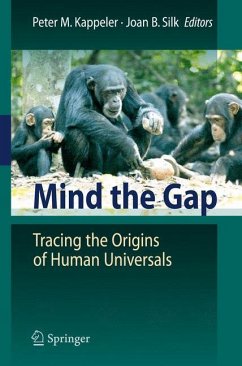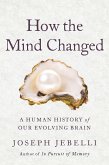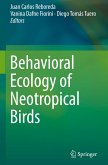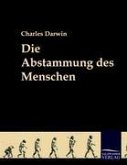This volume features a collection of essays by primatologists, anthropologists, biologists, and psychologists who offer some answers to the question of what makes us human, i. e. , what is the nature and width of the gap that separates us from other primates? The chapters of this volume summarize the latest research on core aspects of behavioral and cognitive traits that make humans such unusual animals. All contributors adopt an explicitly comparative approach, which is based on the premise that comparative studies of our closest biological relatives, the nonhuman primates, provide the logical foundation for identifying human univ- sals as well as evidence for evolutionary continuity in our social behavior. Each of the chapters in this volume provides comparative analyses of relevant data from primates and humans, or pairs of chapters examine the same topic from a human or primatological perspective, respectively. Together, they cover six broad topics that are relevant to identifying potential human behavioral universals. Family and social organization. Predation pressure is thought to be the main force favoring group-living in primates, but there is great diversity in the size and structure of social groups across the primate order. Research on the behavioral ecology of primates and other animals has revealed that the distribution of males and females in space and time can be explained by sex-speci?c adaptations that are sensitive to factors that limit their ?tness: access to resources for females and access to potential mates for males.
From the reviews:
"This edited, 22-chapter volume organizes contributions by experts from a wide range of disciplines ... to address the origins and evolution of human universals--specifically, those behavioral and cognitive features that make humans a distinct species from other primates. ... In looking for evidence of both convergence and common descent in specific traits, as is common in comparative primatology, contributors make a very strong effort to evaluate the available evidence for evolutionary continuity in human social behavior. ... Summing Up: Recommended. Upper-division undergraduates through researchers/faculty." (R. A. Delgado Jr., Choice, Vol. 47 (11), August, 2010)
"Mind the Gap, Tracing the Origins of Human Universals ... a collection of contributions dealing with the issue of human uniqueness from a multidisciplinary perspective. ... Mind the Gap brings together most of the 'hot' topics in primatology, along with interesting contributions from cultural anthropology, and, notably, draws our attention to two critical and frequently omitted aspects of comparative research, namely the importance of studying species that are evolutionarily distant from humans, and not only the great apes, and the need for more cross-cultural research." (Elsa Addessi, Metascience, Vol. 20, 2011)
"This edited, 22-chapter volume organizes contributions by experts from a wide range of disciplines ... to address the origins and evolution of human universals--specifically, those behavioral and cognitive features that make humans a distinct species from other primates. ... In looking for evidence of both convergence and common descent in specific traits, as is common in comparative primatology, contributors make a very strong effort to evaluate the available evidence for evolutionary continuity in human social behavior. ... Summing Up: Recommended. Upper-division undergraduates through researchers/faculty." (R. A. Delgado Jr., Choice, Vol. 47 (11), August, 2010)
"Mind the Gap, Tracing the Origins of Human Universals ... a collection of contributions dealing with the issue of human uniqueness from a multidisciplinary perspective. ... Mind the Gap brings together most of the 'hot' topics in primatology, along with interesting contributions from cultural anthropology, and, notably, draws our attention to two critical and frequently omitted aspects of comparative research, namely the importance of studying species that are evolutionarily distant from humans, and not only the great apes, and the need for more cross-cultural research." (Elsa Addessi, Metascience, Vol. 20, 2011)








